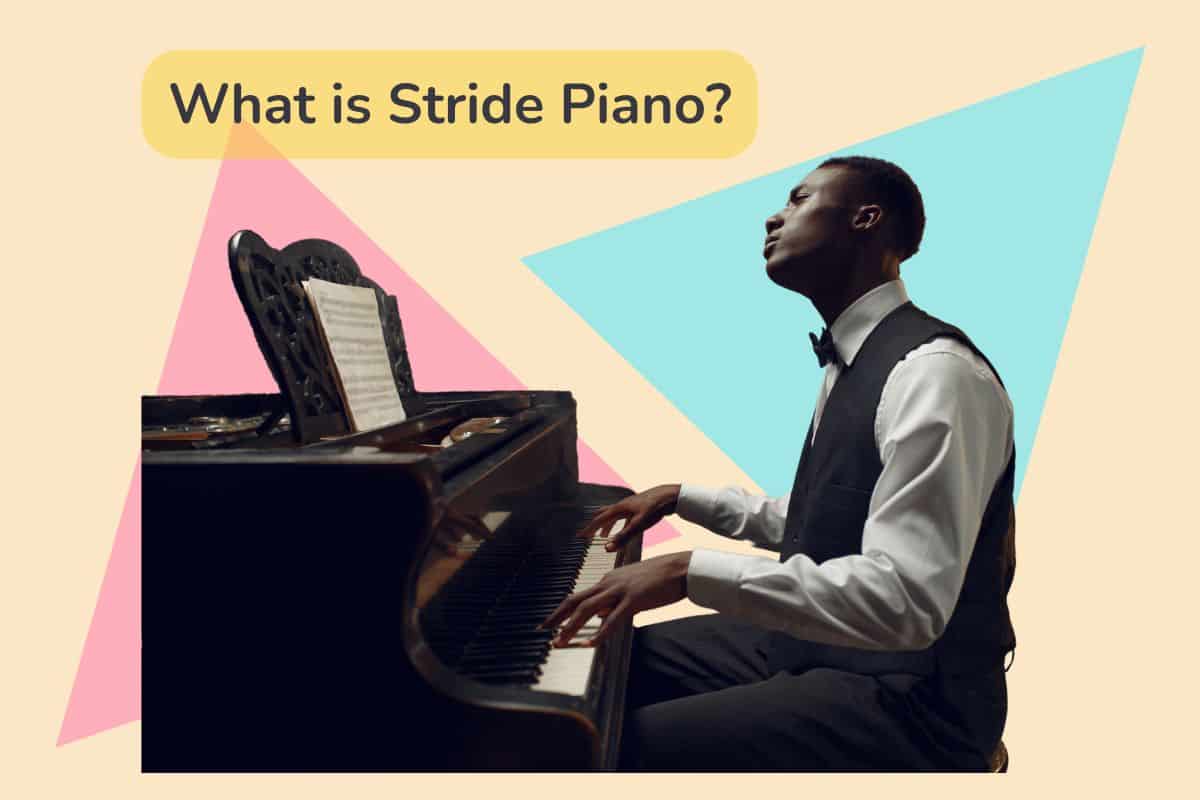The modern contemporary genre is heavily disputed, and it’s challenging to agree on which music style it encompasses. Most agree that it’s a modern rendition of classical themes that differs from popular music. You’ll find many composers focusing on traditional instruments such as the piano to bridge classical compositions to music today.
Modern contemporary piano composers well-known today include:
- Steve Reich
- John Adams
- Nils Frahm
- Erland Cooper
- Ólafur Arnalds
- Helen Jane Long
- Dustin O’Halloran
- Yiruma
- Lera Auerbach
- Tristan Murail
- Errollyn Wallen
- Arvo Pärt
- George Crumb

This article explains a popular definition of modern contemporary music before diving into piano composers that have shaped the genre.
What is Modern Contemporary Music?
There are plenty of opinions on what modern contemporary music is, but a commonly accepted definition is any music written in the current decades.
Modern contemporary is more recent than modern alone, which refers to any music written since the mid-1900s. The inclusion of contemporary often limits this genre to living composers or those still performing.
The contemporary classical music typical in this genre often sits on the outskirts of popular contemporary music because it differs from public popularity. While modern classical pieces broke off from classical completely, contemporary classics revisit writing music with recognizable melodies while toeing the line between classical characteristics and popular culture.
Film composers are a great example of the modern contemporary genre, but many piano composers do not dabble in the film industry.
Modern Contemporary Piano Composers
Most modern contemporary piano composers fall into several genres, such as minimalist composers like Steve Reich or experimentalists like George Crumb. Still, all have contributed to the resurgent interest in classical compositions. Indeed, most of the minimalist piano composers found in this article could be included here, but they haven’t for the sake of duplicity.
Steve Reich (1936)
Steve Reich is arguably the most celebrated composer of minimalist piano music, and his Piano Phase is a clear example of why. The piece includes two pianos that play the same phrase, initially at the same tempo until the second speeds up and laps the first.
This dizzying and hypnotic piece exhibits the separation of modern contemporary from classical, despite the shared instrument. Reich’s pieces show exemplary control over nuance, melody, and motif to create expressive works.
These pieces reject the idea of western classical traditions. Reich uses innovative processes like tape loops to create the phasing patterns his works are known for, such as in It’s Gonna Rain (1965).
John Adams (1947)
John Adams is another composer known for his minimalist works. Adams was inspired by Wagner and Mahler’s minimal soundscape of pieces, and his pieces swell with emotion. They tie the romantic tendency of music to contemporary progression, and Adam’s compositions are often forward-thinking and controversial.
His works are often politically inspired, including his operas Nixon in China and Death of Klinghoffer.
Beyond these controversial operatic pieces, Adams is known for piano pieces such as:
His work is often considered divisive, despite its shaping of the modern contemporary genre.
Nils Frahm (1982)
Nils Frahm is a German-born musician, composer, and record producer based in Berlin. His music combines classical ideas with electronic music, and he often has an unconventional approach to how he presents piano in his mixes.
He uses many variations of the piano, namely:
- Grand piano
- Upright piano
- The Roland Juno-60
- Rhodes piano
Frahm also frequently makes use of drum machines and the Moog Taurus.
Frahm grew up near Hamburg, where he learned the styles of both classical pianists and contemporary composers. He used mixing boards often in school and is greatly interested in recorded sound quality.
After studying piano under Nahum Brodski for 8 years, Frahm went on to produce solo piano works like Wintermusik and The Bells. He later branched into film score composition and, in 2015, composed his first original film score for the German film Victoria.
Frahm created Piano day to happen on the 88th day of the year to acknowledge the 88 keys of a piano.
Erland Cooper (1984)
Gawain Erland Cooper is a Scottish composer and producer who works with many instruments, including the piano. He was born and grew up in Stromness, Orkney, and his current works land him as an interdisciplinary artist with 7 critically acclaimed solo albums.
His work combines field recordings with classical orchestrations and contemporary elements to navigate themes of nature, people, place, and time.
His pieces and theories credit him with exploring the concept of psychogeography that connects identity, memory, and place using music, words, and cinematography. One of his piano pieces, Holm Sound (video above), comes from an album that ties back to his reminiscent Orkney trilogy.
One of his most recent headline-worthy activities includes burying the only existing copy of the master magnetic tape for his first classical album, then deleting all digital files. Fans (and his record label) have until 2024 to find it before Cooper retrieves it himself.
Ólafur Arnalds (1986)
Ólafur Arnalds is a modern piano composer known for his unique blend of classical and electronic music. Born in Iceland in 1986, Arnalds was introduced to music by his mother and grandmother and learned to play several instruments.
He later studied classical music composition at the University of the Arts in Reykjavík, although he dropped out after a year due to commitments as a drummer with a punk band. Shortly after, he recorded his debut solo work: “Eulogy for Evolution” (2007).
Arnalds has further released several critically acclaimed albums, including “Living Room Songs,” “The Chopin Project,” which he dedicates to his grandmother, and “Re:member.”
His music has been featured in films, television shows, and video games, and he has collaborated with various other artists, including Bonobo, Nils Frahm, and Agnes Obel.
In his compositions, Arnalds often incorporates minimalism and ambient music elements, creating a distinct and evocative sound. He is known for using a range of unconventional techniques in his music, including layering and looping, as well as incorporating electronic elements such as synthesizers and drum machines.
Arnalds’ music has been described as meditative and reflective, with a sense of atmosphere and space. His compositions often explore themes of memory, loss, and the natural world and are known for their emotive and haunting qualities.
Overall, Olafur Arnalds is a highly talented and innovative modern piano composer who has significantly contributed to the world of classical and electronic music. His unique blend of styles and techniques has earned him a devoted following and cemented his place as a leading figure in contemporary music.
Helen Jane Long (1974)
Helen Jane Long is a contemporary pianist recognized for her vivid and emotional compositions. Her blend of classical and modern styles, which frequently contains jazz, pop, and cinematic music elements, has earned her a dedicated audience.
Born in Hampshire, England, she began classical piano training at four before learning other musical instruments. It was during her days at university that she started composing and slowly started to build the elements of a home studio. This gave her unlimited creative authority over creating and recording her own songs.
She went on to create numerous successful solo piano albums, including “Porcelain,” “Identity,” and more recently “Vessel of Light,” which have received critical acclaim for their technical mastery and poignant songs. Her work has also given her the accolade of being the world’s most streamed female pianist and composer.
Long has composed music for films, television shows, and ads in addition to her solo work. She has collaborated with major corporations such as British Airways and Mercedes, and her music has appeared in various films and television shows.
Long is well-known for her ability to create emotionally charged and compelling music that goes directly to the heart. She has a flair for generating unique and profoundly touching songs that resonate with audiences, whether she plays her own tunes or writes for others.
Dustin O’Halloran (1971)
Dustin O’Halloran is a contemporary piano composer recognized for his expressive and evocative works. He has received praise for his work in film, television, and modern classical music, including a Primetime Emmy Award for his score for the television series “Transparent.”
O’Halloran was born in Phoenix, Arizona, and his first love was the guitar; it wasn’t until he was in college that he began to play the piano. During his college years, he met Sara Lov, and together, they established the band Dévics, where he honed his piano skills.
He released “Piano Solos vol. 1 and Piano Solos vol. 2” in 2004 and 2006, respectively, and has since composed a number of works. Among these are various solo piano recordings, such as “Lumiere” and “Vorleben.”
O’Halloran’s solo piano work frequently employs various methods, such as arpeggios, broken chords, and the sustain pedal, to create a rich and layered sound. In addition, he mixes minimalism and impressionism into his pieces, resulting in a distinct and highly expressive piano style.
O’Halloran has collaborated with artists such as Hauschka (Volker Bertelmann) and Adam Wiltzie, with whom he founded the band A Winged Victory for the Sullen.
O’Halloran has composed soundtracks for several films, including Sofia Coppola’s Marie Antoinette, the Sundance award-winning films “Like Crazy” and “Umrika,” as well as the multi-award nominated “Lion” along with Hauschka.
His music has been described as haunting and melancholy, inspiring nostalgia and reflection. His performances are noted for their sensitivity and attention to detail, with an emphasis on generating intimacy and connection with the audience.
O’Halloran’s talent has gained him critical acclaim and a devoted fanbase, whether he is performing his own compositions or interpreting pieces by other composers. He continues to develop and perform his distinct brand of modern classical music, enthralling listeners with his beautifully crafted pieces.
Yiruma (1978)
South Korean composer 이루마, best known by his stage name Yiruma, is a vital example of the influence of modern contemporary music on the current scene. He started to learn piano at age 5 before moving to England in 1988, eventually graduating from King’s College.
Yiruma returned to South Korea and released his debut album in 2001 before garnering attention for his piano covers of the soundtrack for Spring Waltz, a 2006 drama series.
The tenth anniversary of his compilation album later debuted at #3 on the Billboard classical charts in July 2020, eventually climbing to the top spot. Yiruma’s work soared in popularity during the COVID-19 lockdowns, and modern contemporary pieces like River Flows in You have millions of online views.
Lera Auerbach (1973)
Lera Auerbach is a Soviet-born American composer. She’s told interviewers that she was born to work in art and can trace the feeling back to coming to New York as a 4 years old child.
Auerbach is skilled at conveying emotion in any art form she chooses, and she goes beyond composition to express herself through paintings, sculptures, and poetry.
Her compositions have been commissioned and performed by many, including an extensive list of ballet companies, artists, orchestras, and choirs. The Royal Danish Ballet commissioned her in 2005 to celebrate Hans Christian Andersen’s bicentenary in a modern rendition of The Little Mermaid.
Auerbach’s 24 Preludes for Piano (video above) is considered her breakthrough piece. The idea of preludes as an introductory piece was primarily impacted by Chopin’s 24 Preludes, Op. 28, and Auerbach adapted his idea of large-scale preludes in her piece.
Tristan Murail (1947)
Tristan Murail is a French composer famous for using the spectral technique when composing. He focuses on using the fundamental properties of sound to create a basis for harmonies, and spectral analysis facilitates the polyphony of his pieces.
While Murail studied Arabic and economics at university, his studies at the Paris Conservatory focused on composition with Olivier Messiaen. He later taught the subject, including computer music and composition, at IRCAM from 1991 to 1997.
Murail assisted in developing a patchwork composition software and later served as a professor of composition at Columbia University in New York.
He often includes modern instruments in his chamber music, but Murail has several solo instrument pieces that focus on piano.
Errollyn Wallen (1958)
Errollyn Wallen was born in Belize but moved to London when she was 2 years old to live with her aunt and uncle. Wallen trained as a dancer before abandoning her training and returning to her interests in music composition.
She studied music at Goldsmiths in 1981, then composition at King’s College London before earning a Masters of Philosophy at King’s College, Cambridge, but she composed professionally before those studies.
Her pieces are a mix of avant-garde influence and popular music, and they have been played across the globe. She grew up exposed to both blues and classical music, and you feel the blend of modern and traditional ideas in pieces such as I Wouldn’t Normally Say.
Arvo Pärt (1935)
Estonian composer Arvo Pärt has a reputation for variation in his works. He garners inspiration from the Gregorian Chant, underlining it with the ideas of minimalist expression in compositions.
Für Alina is an excellent example of the inspiration from Beethoven’s Für Elis, the simplicity and emotion of Part’s work, and the lasting impression of his compositions.
Pärt’s experimentation can be traced back to the broken piano he played as a child. As the middle register was damaged, he was forced to adapt pieces to top and bottom notes instead.
His residence in Estonia also restricted him from musical influences outside the Soviet Union, and many of his pieces are characterized by his faith in God and commentary on society.
Between 2011 and 2018, Pärt was accredited to be the most performed living composer. The data was collated by Bachtrack, which monitored and analyzed 33,578 music events in 2018 alone!
George Crumb (1929-2022)
George Crumb is an Avante-Garde composer whose pieces are well-recognized for how they pushed at the usual techniques. They encompass a variety of moods, and Crumb earned a reputation for his jerking dynamics that could make your skin crawl. A clear example of this is Black Angels.
Crumb had an early introduction to classical music that held onto him throughout his life. The influence of composers such as Bach and Chopin is found in musical quotations from his compositions.
Makrokosmos is arguably his most famous and ambitious work, including four books. The first two, written for solo piano, utilize string piano techniques and vary dynamics from pianissississimo (pppp) to fortissississimo (FFFF). This expands into a third book for two pianos and percussion and then a fourth book for piano four-hands.
Crumb’s specific style of modern contemporary music is marked by unconventional contributions to the pieces, including singing, whispering, moaning, and unconventional methods of play.
While he passed away at the beginning of 2022, his legacy lives on through the starkness of his compositions and the legacy of creation he instilled in his children.



